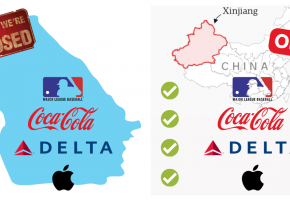China Reportedly Seeks to Delay TikTok Deal
A quiet move by the Xi regime to complicate the sale of TikTok was promptly followed by a not-so-subtle warning to the West from Chinese state media regarding any potential business deal. TikTok, which is owned by the Chinese company ByteDance, was ordered to be sold by the Trump administration due to security concerns.
On August 29, Nikkei reported the Chinese government was “casting a shadow over the pending sale” of the platform by adding “several artificial intelligence technologies to its export control list.” The new items included “personalized information push service technology based on data analysis” and “artificial intelligence interactive interface technology.” Nikkei noted that the inclusion of the technologies implied that they “could potentially have both civilian and military use and that their sale overseas will be restricted.”
The next day, Xinhua, an influential Chinese state-run press organ, ran an interview with a professor who provided this analysis: “It is suggested that ByteDance carefully study the revised catalogue, seriously and carefully consider whether it is necessary to suspend substantive negotiations on relevant transactions, comply with statutory application and reporting procedures, and then take further actions as appropriate.” The Telegraph wrote “experts believe that intervention may have been designed to pause negotiations until November in the hope that an election victory for Joe Biden could trigger a sharp drop in pressure on the business” and asserted “for the export controls to be updated this week, after so many years, is not a coincidence.”
TikTok got the message loud and clear. Representatives for their parent company, ByteDance, let it be known they were studying the new law — as advised by the Xinhua analyst — and pledged to “strictly follow” it.
The control list is seemingly meant to hamstring potential acquisition deals. The Wall Street Journal reported that the snag was rooted in confusion over whether the “app’s core algorithms can be included as part of a deal” as they are viewed as the platform’s “secret sauce.” The Investigative Research Center has previously examined the threat posed by TikTok’s data collection practices and “black box” algorithmic referral methods.
Just days before the export control hurdle became known, TikTok was reportedly considering acquisition bids from American companies. A joint effort from Walmart and Microsoft represented one potential avenue, the other under consideration was from Oracle.



